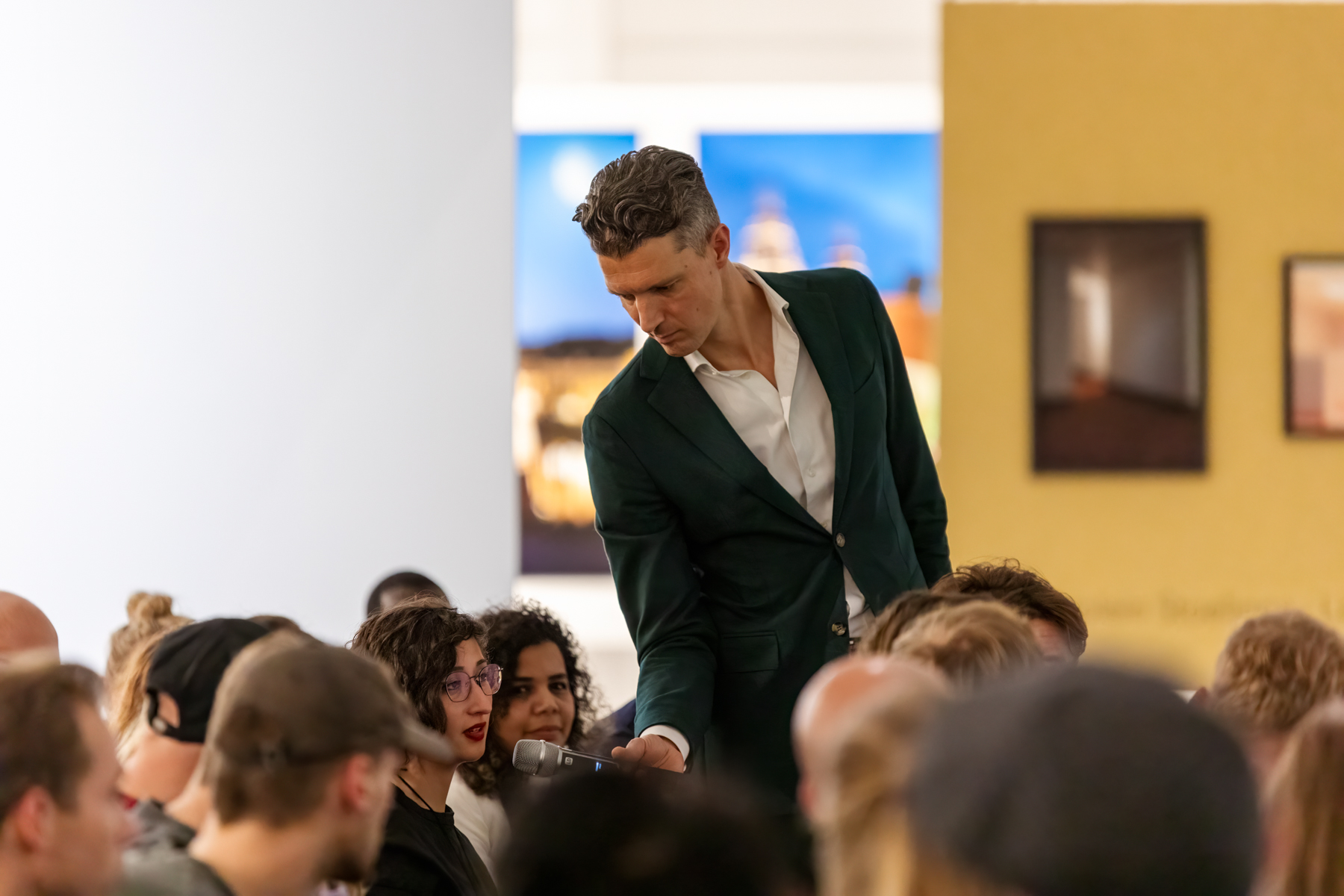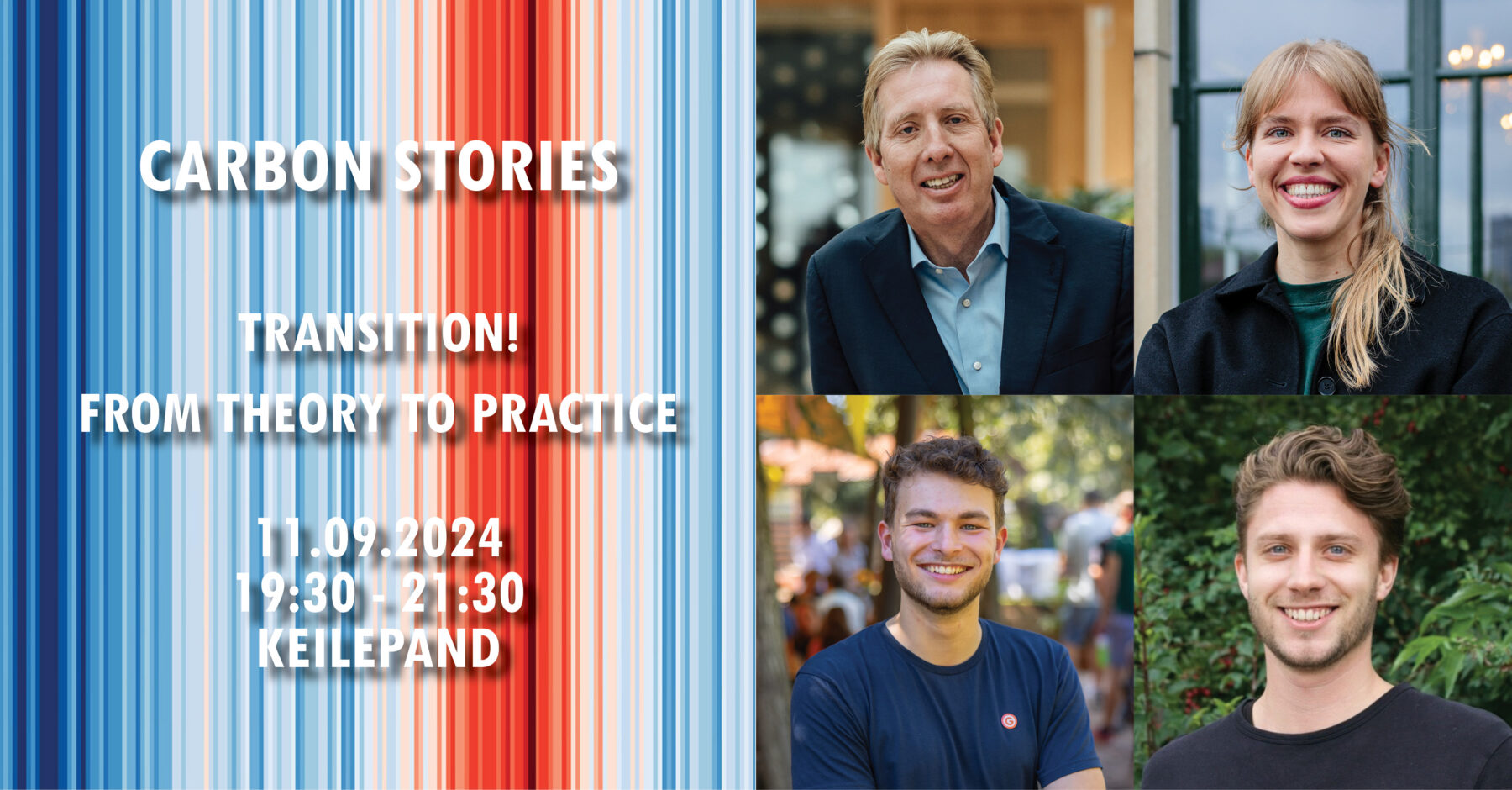
Carbon Stories: Transition! From theory to practice
This 12th edition wraps up the second year of the debate series Carbon Stories. This milestone takes place in the setting of the exhibition ‘HOW DO WE WANT TO BUILD M4H 2030’ spanning 200 years of building practice, from 1900 to 2100. Carbon Stories brings this intergenerational approach to the stage with an inspiring cast to discuss past, present and future. How do we achieve a truly sustainable construction practice? What are the challenges? How can we accelerate? Wednesday, September 11th, these questions were addressed in a debate with Jan Rotmans, Margot Holländer, Sam van Hoof and Sacha Brons. Watch the full debate Transition! From theory to practice online.
The past editions of Carbon Stories have zoomed in on the possibilities of CO2 reduction in the built environment, each edition through a different thematic lens. Topics varied in scale, from urbanism to building typologies to materials. Topics varied in focus, from circularity to financial models to a dialogue on systemic innovation.
After two years, it is time to zoom out again and check in with the key questions of our sector’s transition. What are the main challenges? In terms of quantification, available resources, but also in terms of our mental capacities to bring about transition. The upcoming season we will zoom in on how to apply the lessons learned so far to Rotterdam in general and the M4H area in particular.
Captain of Transition Prof. Dr. Ir. Jan Rotmans will give a keynote lecture on transition, the scale and magnitude of the change of era. How does this affect the built environment? In what conditions do transitions thrive? Where do we stand now, in the second part of 2024?
Margot Holländer is an engineer and co-founder of the architecture firm MOR Studio. From graduating from TU Delft, she went straight to work on sustainable design in practice. MOR Studio was founded to change building practice: by putting positive impact first and by focusing on transforming vacant buildings rather than building new ones.
Sam van Hooff, Sustainability Advisor at Dura Vermeer Bouw Heyma, will zoom in on what transition to sustainable construction requires from a large contracting firm. In terms of mental changes up to practical examples of changes to logistics, processes and materials.
Sacha Brons is one of the drivers of bringing the value of biogenic storage into financial models. As co-initiator of Dutch Carbon Credits, specifically for the construction stored carbon, he will share how Carbon Credits can act as a true accelerator of transition in the agricultural and construction sector, rather than an alibi for the prolongation of defunct business- and production models.
The debate is moderated by Geert Maarse.
This event is English spoken.
Carbon Stories is an initiative of GROUP A | CARBONLAB, International Architecture Biennale Rotterdam and KeileCollectief.

Bio
Sacha Brons (23) is a food forest farmer, carbon expert and transition fanatic. Sacha walks the walk as a farmer, but also loves to talk the talk, specifically about nature-based solutions, transition finance and carbon removal. Sacha aims to radically change the financial system to adequately reward and incentivise carbon removal from the atmosphere into soils, biobased products and ecosystems. He does this as Head of Construction Stored Carbon at Climate Cleanup Foundation and as Carbon Removal Expert at Building Balance. But most of all, Sacha loves to work on his 13.5 ha food forest in Elst called ‘Voedselbos De Laar’, where the first trees will be planted in November 2024.
Margot Holländer is an engineer and co-founder of the architecture firm MOR Studio. From graduating from TU Delft, she went straight to work on sustainable design in practice. MOR Studio was founded to change building practice: by putting positive impact first and by focusing on transforming vacant buildings rather than building new ones.
Sam van Hooff (29) is a sustainability optimist, with the goal of changing the construction sector towards more sustainable building practices. He is focussed on translating the (sometimes complex) sustainability principles towards simple actions that are applicable by anyone.
